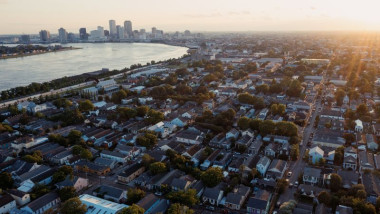The home insurance market is crumbling. These owners are paying the price
The home insurance market is crumbling in New Orleans, leaving Alfredo Herrera with few options for coverage — and skyrocketing insurance premiums.
Herrera, 35, works in finance for a local bank. He bought his 900-square-foot home in New Orleans’ Mid-City neighborhood in 2020 for $270,000, and lives there with his partner.
In 2022, he paid $1,600 a year for home insurance. But last July, his insurer canceled his coverage, saying it was leaving Louisiana.
In the past, acquiring or keeping homeowners’ insurance didn’t present much of a problem.
But as climate change increases the frequency and severity of extreme weather, insurers — especially those in areas most impacted by floods and fires — are raising their premiums, or pulling out altogether, impacting the affordability and availability of home and fire insurance.
